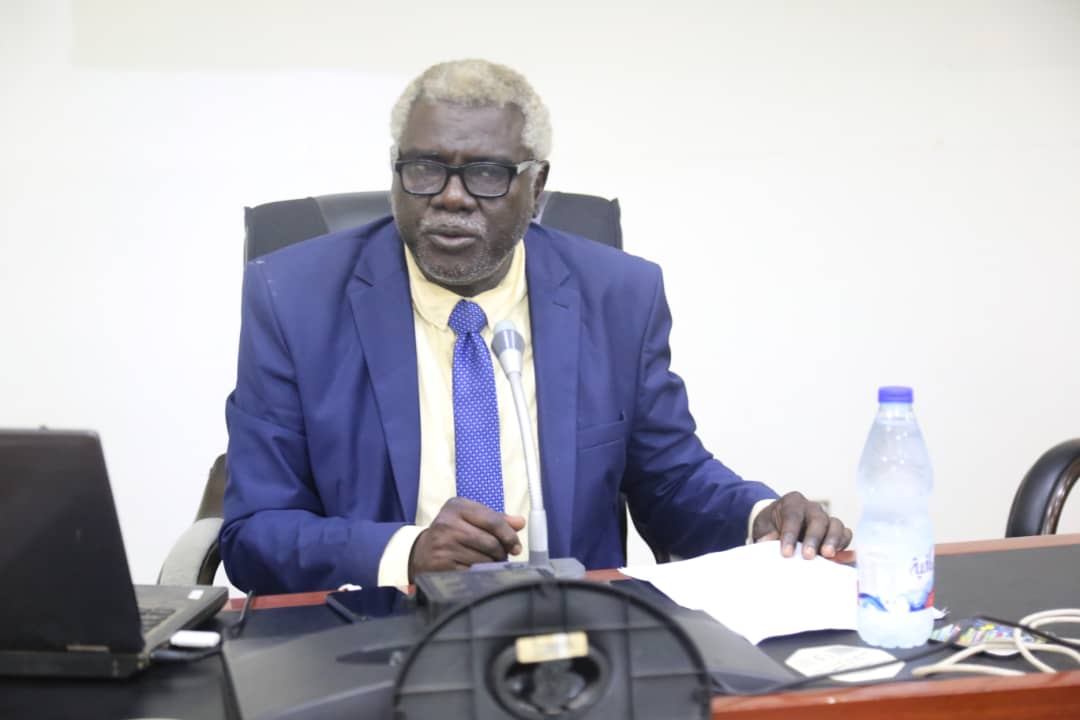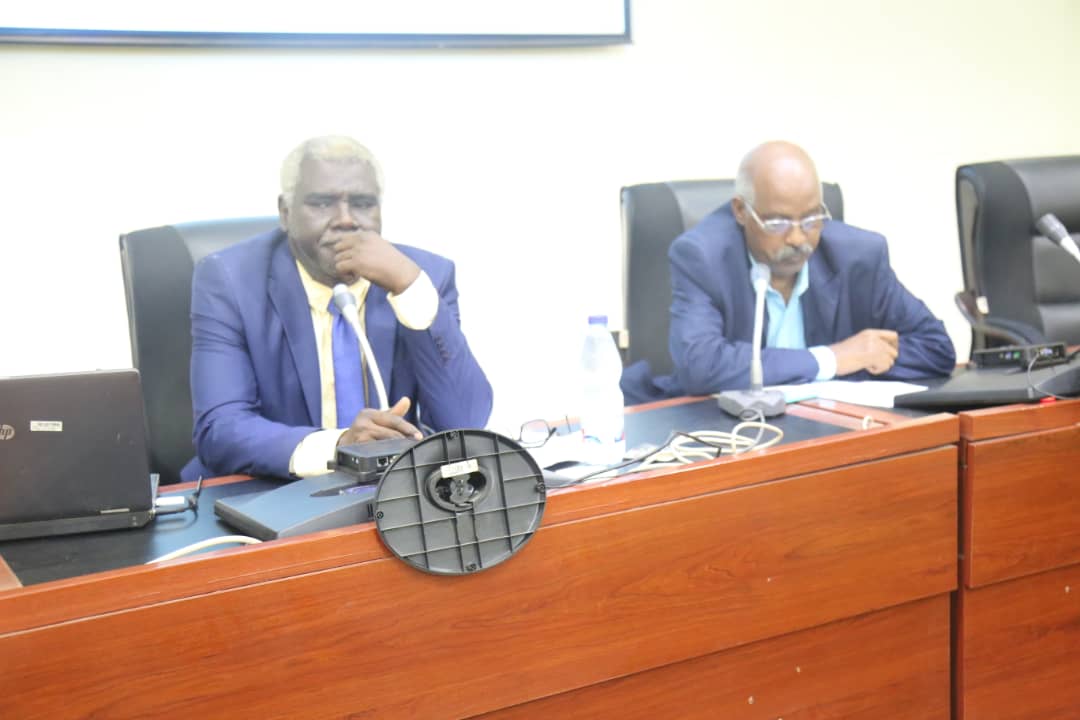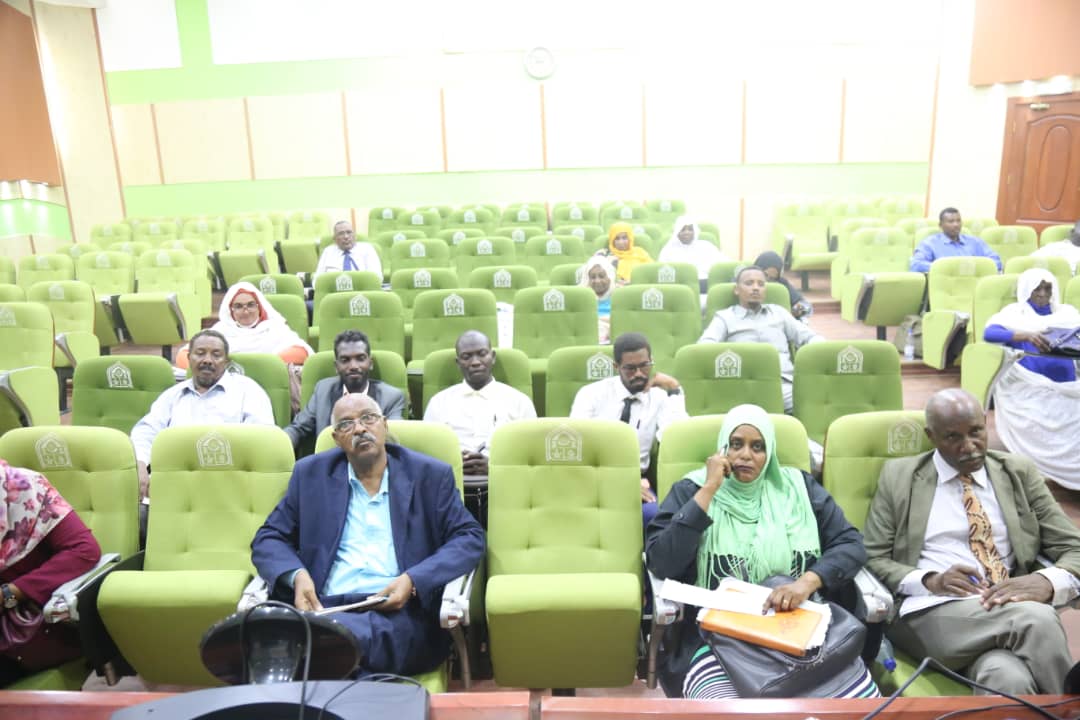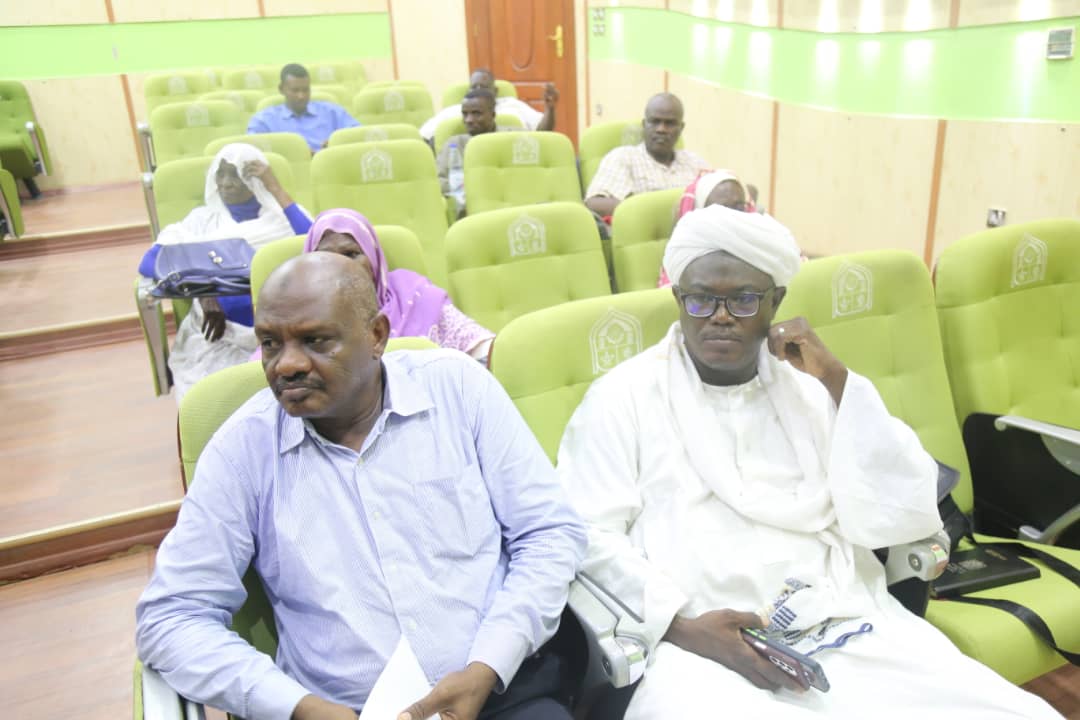The Institute for Studies and Culture of Peace at Sudan University of Science and Technology (SUST), in cooperation with the Center for Peace and Human Rights and the Institute for Religious Studies and Diplomacy, held a workshop titled "Transitional Justice, a Scientific Vision", under the auspices of Prof. Eisa Bashier Mohamed, vice chancellor of the University, with the participation of experts, human rights activists, and activists in civil society organizations. Through the workshop, two working papers were presented. titled "Transitional Justice - The American Project".
Prof. Suleiman Yahya, Dean of the institute for Studies and Culture of Peace, assured the need for the workshop to come out with realistic, practical and scientific recommendations to help local communities return to normal life, participate in the process of democratic transformation, heal wounds, build the new state, achieve stability and sustainable development, within the framework of the Sudanese National Peace Movement.
Dr. Atif Adam Mohamed, representative of the workshop co-organizers, confirmed that these activities meet the political, economic and social needs of the community, as our society faces many complications in the political and justice fields due to the renewal and development of conflicts and the reality of imposing security and state authority and demanding political rights, which called for research on how to deal with the resulting effects. Which always accompanies political transformation. He urged the participants to reach for knowledge, each in his field, through a scientific vision of how to deal with justice problems of all kinds.
Prof. Abuelgassim Gor Hamid Mohmmed, an expert in peace studies, defined transitional justice as a set of processes and ethical, legal, political and social standards that are developed to ensure the transition from situations of violence and repression to peace and democracy, where post-conflict justice is considered to help societies move from totalitarian systems to democratic systems and seek to create a balance between accountability and reconciliation to heal The wounds left by wars and conflicts from human rights violations or crimes against humanity. He added that Sudan at this stage is scientifically described as one of the post-conflict countries in the heart of Africa as it seeks democratic transition in all its strategic, social and economic dimensions through national, regional and international efforts.
Furthermore, he stressed the interest of the University's Institute of Peace Culture in the transition and its mechanisms, as it examines how to build the historical bridge to the transition, taking advantage of the scientific method in peace and conflict studies research and supporting community activities.




